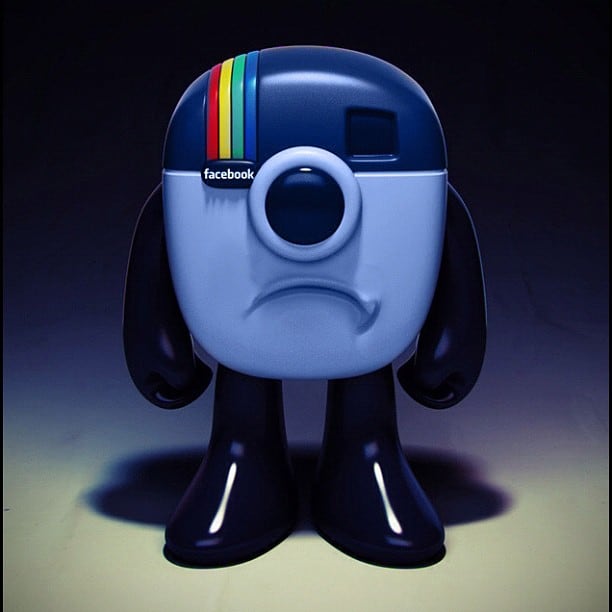It was just last week that the photo sharing application Instagram became available for

Android. Android users rejoiced, and iPhone users mourned the loss of their exclusive relationship, many enraged that their “Instagram Club” had been ruined. Twitter wars ensued and articles were written. However last week’s Instagram drama hardly seems significant after the bomb that dropped yesterday afternoon.
In case you haven’t heard:
Facebook bought Instagram for $1B. Yes, BILLION.
So now all the “iPhone snobs” that were in a huff about simply having to share “their” application with those Android users, must now come to terms with the fact that they are using a product owned by the big box retailer of social media – Facebook.
According to the official announcement made by Mark Zukerberg, not much about Instagram will change aside from the fact that he is now the owner. Users will still be able to share their photos with other social networks such as Twitter and Foursquare. Facebook sharing will not be mandatory. So what exactly is the difference for users? I asked a few of those “iPhone snobs” and got some interesting responses. “I know it’s still the same. But there’s just something about knowing Facebook owns it that makes it feel … dirty”. Or my favorite, “If Wal-Mart bought Trader Joes would YOU still shop there!?”
Less than 24hrs after the official announcement, an Instagram search of the tag #Facebook brings in over 120,000 individual images of users’ visual protests and perfectly filtered anti-Facebook messages comparing the acquisition to an attempt at world domination.
A little extreme, no? After all, aren’t they just social networks?
Controversy over the acquisition seems to stem mainly from the social implications of social media platforms. It speaks to the fact that many people feel the social networks and applications they use reflect who they are and what they stand for. The theory of the Extended Self frequently leveraged by brand marketers states that possessions, purchases, and buying habits reflect and contribute to the identity of the user. Consumption habits acting as an extension of the consumer’s identity are seen in loyal brand devotees and brand tribes defending one product over the competition – have you ever wondered why Apple users are SO committed; why it seems that if you say anything pro-PC, you’ve insulted more than just a piece of hardware?
Two months ago, judging and stereotyping Pinterest users was the hot topic of the moment. Social networks are big brands in today’s constantly connected society. Which ones you use say just as much about you as your decision to buy an iPhone over Android, or if you choose Starbucks over a local café. The viral angst from the Instagram community concerning who can join their network and who owns it shows that as social media becomes an ever increasing cornerstone of our daily lives and more niche networks gain mainstream popularity, the medium may hold more meaning than the content.





